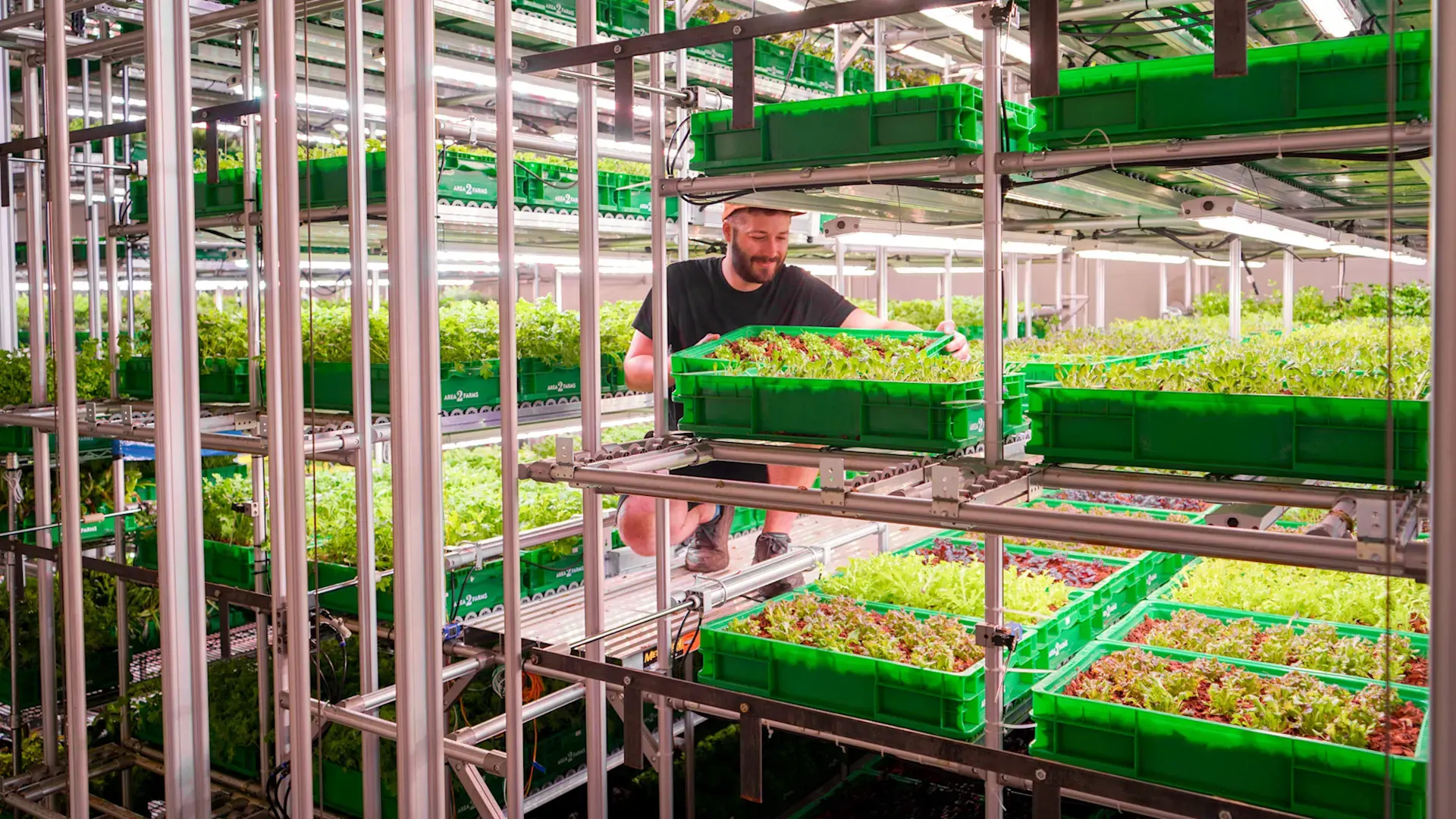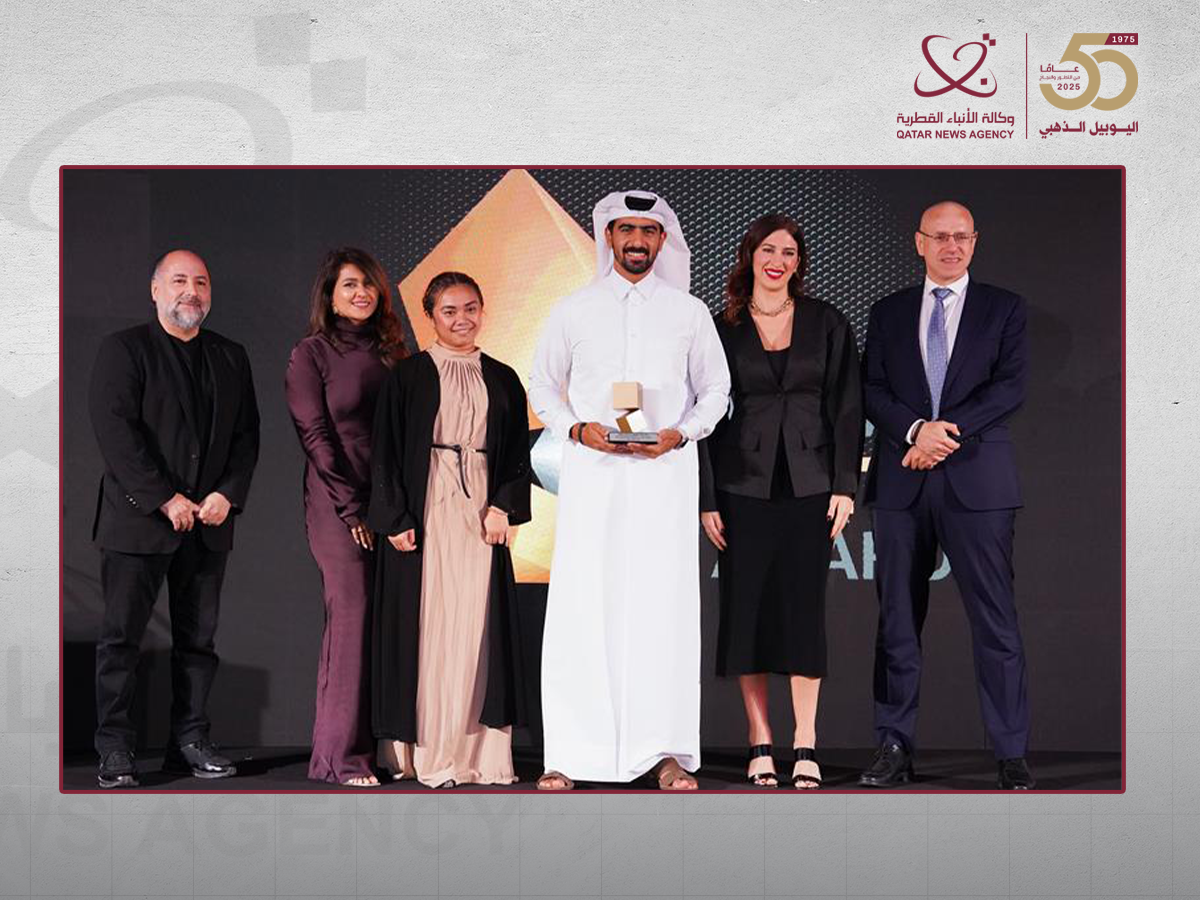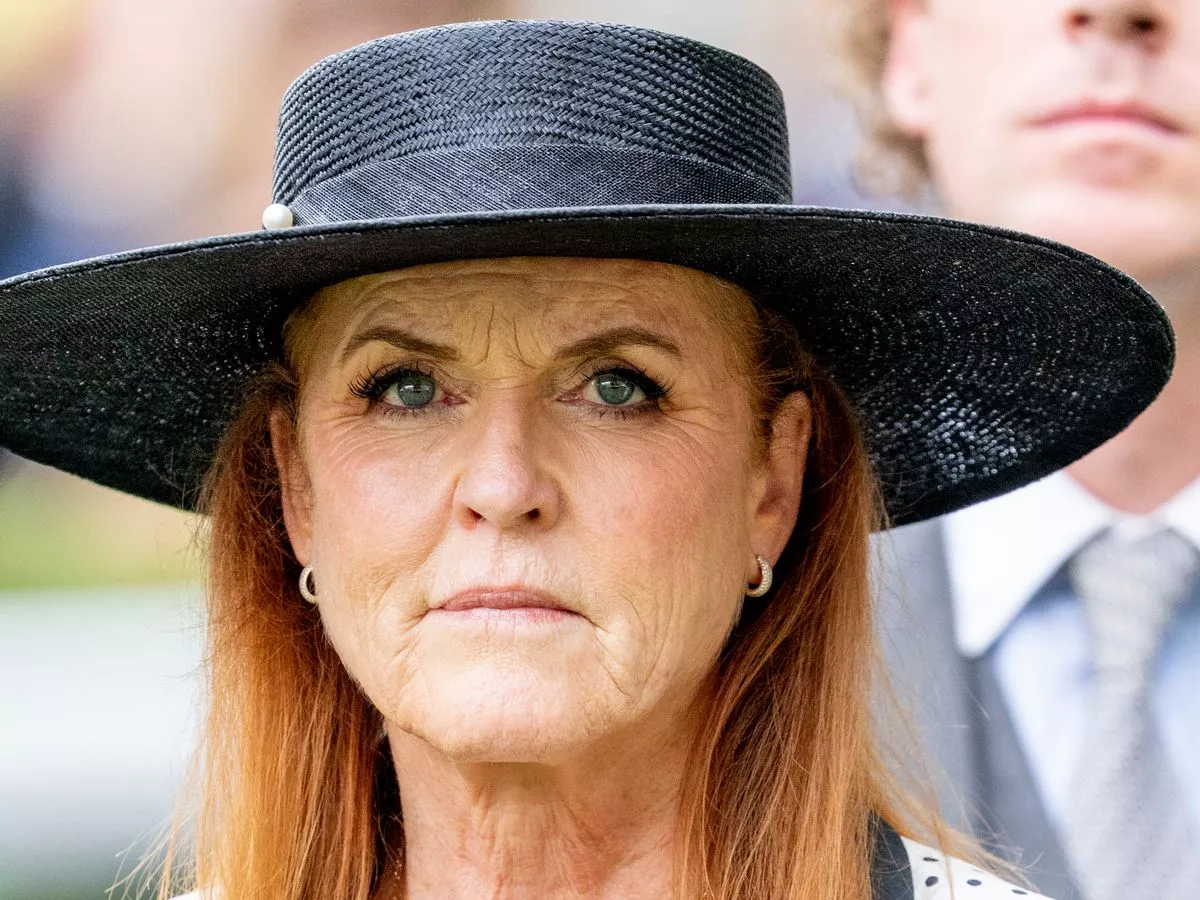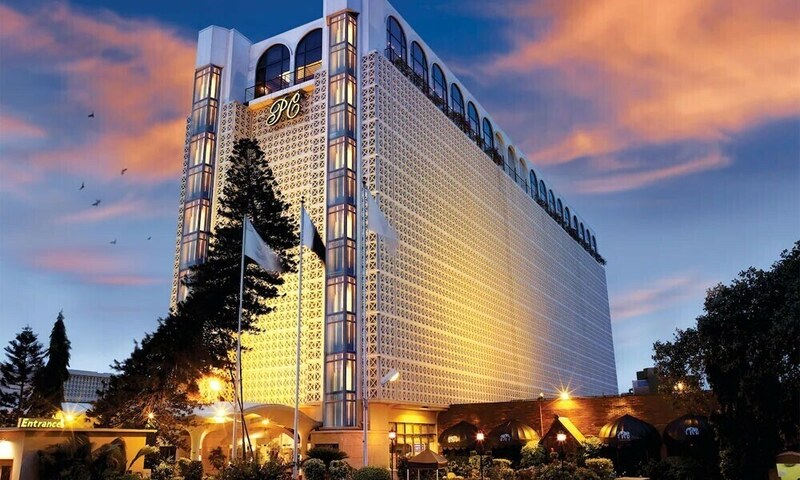
Many of the office buildings emptied by the pandemic are still sitting vacant. A recent report from Moody’s Analytics found that in the second quarter of 2025, office vacancy rates were still above 20% nationwide, and cities across the country are still trying to figure out what, if anything, to do about it. One startup has an unconventional solution: it wants to fill that empty space with crops.
Area 2 Farms is a three-year-old company based in Arlington, Virginia, that’s taking the concept of indoor farming to unusual spaces. Its first farm, in Arlington, grows dozens of varieties of crops in a low-slung brick building tucked between a dog day care and a car repair shop. With a new infusion of venture capital, the company is planning to expand, and it’s looking to empty office buildings as potential future farms. “Part of our vision is that a farm can go anywhere,” says the company’s founder, Oren Falkowitz.
Backed by $9 million in new funding from Seven Seven Six, Slow Ventures, 468 Capital, and Animo, Area 2 Farms is planning to build 10 new farms across the U.S. in 2026. Falkowitz says the company is currently pursuing opportunities in Philadelphia, Charlotte, Nashville, South Florida, Orlando, Austin, and Raleigh-Durham, and Atlanta. His goal is to build indoor farms within 10 miles of 90% of the U.S. population.
Proximity is the driving idea behind the company. Falkowitz grew up in south Florida and remembers a time when oranges were typically bought not at a grocery store but from the actual orange grove, directly from the farmers who grew them. Today studies estimate that most produce travels hundreds of miles before it reaches the end consumer.
Featured Video
An Inc.com Featured Presentation
“The production of our food just gets pushed further and further away,” Falkowitz says. “As a result of this distance, the stores are asking growers to produce things that are more shelf-stable, not necessarily more diverse or more nutritional.”
Falkowitz, who previously worked for the National Security Agency and later founded two cybersecurity companies, proposes a hyperlocal alternative. “We move the farm, not the food,” he says.
The company’s pilot farm in Arlington produced its first crop in fall 2022. The company estimates it has produced more than 20,000 harvests since then, using a modular rack-based system that automatically moves crops through a cycle of mimicked daylight and darkness.
Planted in box containers filled with soil, the farm is able to grow kitchen staples like lettuce, spinach, carrots, potatoes, tomatoes, and mushrooms, as well as more niche items like amaranth microgreens and purple shamrock. Rising 18 feet tall, the racks cram 200 acres-worth of annual crop growing into 3,000 square feet of real estate.
Indoor farming is not new. Greenhouses are an essential part of the global food system, and Falkowitz notes that hydroponic farming has existed since the days of Babylon. “I would say it’s only partially interesting to be growing vertical, and it’s totally uninteresting or uninnovative to ship your products to Whole Foods, or Safeway, or Publix,” he says.
Area 2 Farms works more like those orange groves Falkowitz remembers as a child, but with the high-tech twist of its automated growing racks. Local farmers run the space and its customer base comes primarily from within a two-mile radius for weekly farm share pickups. “When we build a farm or we move the farm back to people, we want them to interact with it. We don’t want anyone in between the farmer and the consumer,” he says.
The idea has caught on. “We’ve been sold out for the last hundred weeks,” Falkowitz says.
That’s why he’s keen to expand Area 2 Farms’ modular farming technology to new spaces. “What we wanted the technology to be able to do is to fit wherever it could,” he says. “In order to build a greenhouse in a city you would need a quarter-acre to an acre of just land, and that does not exist.”
What does exist in cities is underutilized buildings and oddly shaped lots. Area 2 Farms is currently in the process of building its second farm on a trapezoid-shaped lot in Fairfax, Virginia, that’s been vacant for 20 years.
Falkowitz sees even more potential in the empty offices that litter cities across the country, and he says cities and real estate owners have been open to the idea of taking this farming technology inside former offices. “They’re just like, ‘have the space. We don’t know what to do with it,’” Falkowitz says.
Area 2 Farms is one alternative, and perhaps a second chance for buildings that might have otherwise gone obsolete. “At the core, we’re really focused on revitalizing underutilized or existing spaces,” Falkowitz says. “And that can be a wide array of shapes.”
By Nate Berg
This article originally appeared in Inc.’s sister publication, Fast Company.
Fast Company is the world’s leading business media brand, with an editorial focus on innovation in technology, leadership, world changing ideas, creativity, and design. Written for and about the most progressive business leaders, Fast Company inspires readers to think expansively, lead with purpose, embrace change, and shape the future of business.



